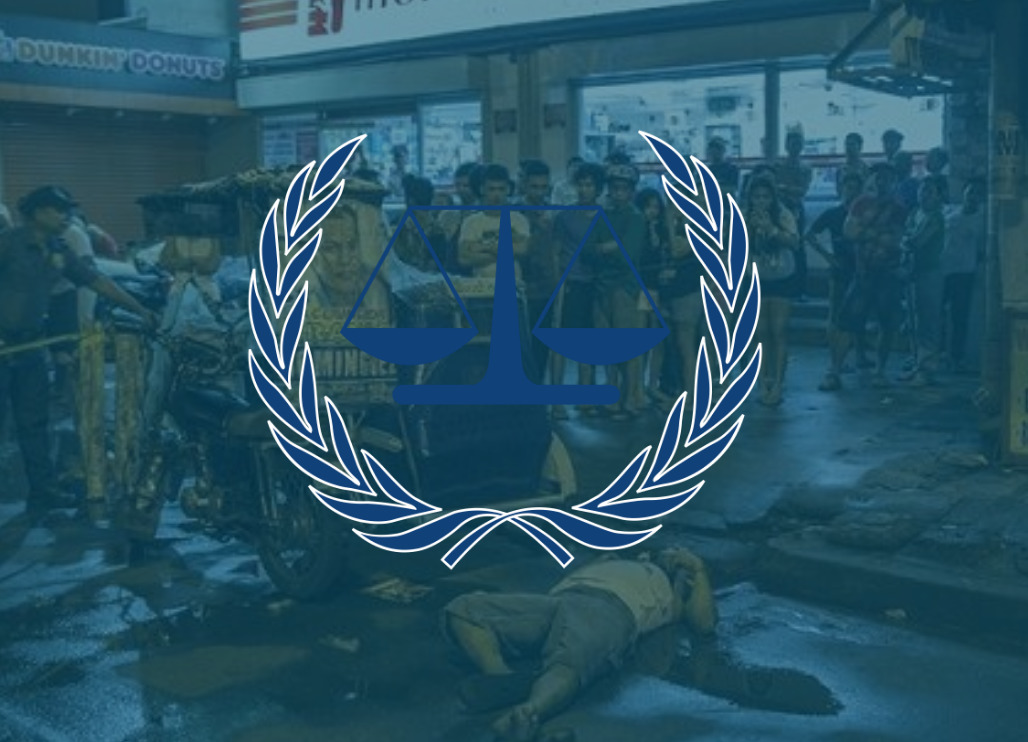The International Criminal Court will resume the investigation into alleged crimes against humanity in the war on drugs of the Duterte administration more than a year since it was suspended.
“After having examined the submissions and materials of the Philippines Government, and of the ICC Prosecutor, as well as the victims’ observations, the Chamber concluded that the various domestic initiatives and proceedings, assessed collectively, do not amount to tangible, concrete and progressive investigative steps in a way that would sufficiently mirror the Court’s investigation,” the ICC Pre-Trial Chamber I said in a Jan. 26 announcement.
Although the Pre-Trial Chamber, a judicial branch under the ICC, recognized the efforts of various government offices to probe the alleged crimes, it concluded that such initiatives do not show progressive investigative steps.
“[W]hen taking into account the possible interaction between government agencies, and assessing the various domestic initiatives and proceedings collectively as assessed above, these steps do not, at present and based on the material before the Chamber, amount to tangible, concrete and progressive investigative steps,” it said.
However, the pre-trial chamber assured that the Philippine government is still allowed to provide materials for Khan’s office or the chamber itself in the future “to determine inadmissibility of the investigation or of any actual case, if and when needed.”
Phil Robertson, deputy director of the Asia division of Human Rights Watch, said the resumption of the drug war probe shows that the ICC “offers a path forward to fill the accountability vacuum” due to the alleged failure of the Philippine government to conduct genuine investigations.
Robertson said, “[T]he ICC investigation in the Philippines is the only credible avenue for justice for the victims and their families of former President Rodrigo Duterte’s murderous ‘war on drugs.’”
Justice Secretary Jesus Crispin Remulla, however is not amenable to ICC coming to the Philippines to investigate. “Definitely I do not welcome this move of theirs and I will not welcome them in the Philippines unless they make it clear that they will respect us in this regard,” he said in a press conference. “I will not stand for any of these antics that will question our status as a sovereign country. We will not accept that.”
The Philippines withdrew from the ICC on March 17, 2018 which took effect a year after. ICC investigation on alleged crimes against humanity arising from Duterte war on drugs covered the period July 1, 2016 to March 16, 2019. The ICC is also looking into killings and other related crimes in the Davao region as early as November 2011.
In a statement to VERA Files, National Union of People’s Lawyers chairperson and International Association for Democratic Lawyers transitional president Edre Olalia welcomed the resumption of the probe “in the midst of continuing impunity, selective memory and orchestrated denial by the past and present governments.”
“It validates once again what the victims have been asserting all along: that there are no adequate and effective measures to achieve concrete justice for them on the ground even at this very day despite official claims to the contrary,” he said.
In a joint statement, the NUPL and Rise Up for Life and for Rights, a group of families of victims and drug war survivors, called on those involved in crimes committed in the Duterte administration’s drug war such as police officers, agents and assets to surface and testify against those with “ultimate guilt.”
“Apela namin na lumantad ang mga pulis, ahente, asset, o tao na alam ang sistema at pagkakawing-kawing ng mga direktiba, at tumestigo laban sa mga ultimong salarin,” the groups said.
(We appeal to police officers, agents, assets and persons who know the system and links of the directives to surface, and testify against those with ultimate guilt.)
Aurora Parong, co-chairperson of the Philippine Coalition for the ICC noted that the decision came after very strong recommendations for prosecution of the perpetrators of extrajudicial killings in the War on Drugs (WoD) during the Universal Periodic Review (UPR) of the Philippines in Geneva, Switzerland where Justice Secretary Remulla spoke about “real justice in real time”. The justice secretary must now give evidence to show that indeed there is real time justice in the country.
“The Philippine government should now realize that badmouthing the ICC, diplomatic runs and rhetorics on justice will not stop the International Criminal Court from doing its work to investigate crimes within its jurisdiction and deliver justice for serious crimes in international law. Instead of calling the ICC decision an “irritant”, the Justice Secretary should consider it a wake- up call. It is a wake -up call to do more and launch bolder actions to exact accountability for serious crimes from those who pulled the trigger and especially officials or heads of state who emboldened them to kill without fear,” the PCICC said in a statement.
Fr. Flavie Villanueva, who runs Program Paghilom “that provides dignified, systematic and holistic healing and care for the victims of Duterte’s war-on- drugs, said, the ICC’s most recent decision “speaks loud and clear that ÿou cannot run away from your past sins.”
Remulla said he has yet to speak with Solicitor General Menardo Guevarra on the next actions of the Marcos administration.
Guevarra said in a separate statement that the government intends to exhaust legal remedies including appealing the Pre-Trial Chamber’s decision to the ICC Appeals chamber.
The investigation into the Duterte administration’s bloody war on drugs began in September 2021. The probe, however, was temporarily suspended in November 2021 on the request of the Philippine government to ICC Prosecutor Karim Khan to defer to local procedures.
The ICC prosecutor alleged at least 12,000 to 30,000 suspected drug personalities died in the Duterte administration’s drug war.
Read the announcement of the court here and the full copy of the decision here.
